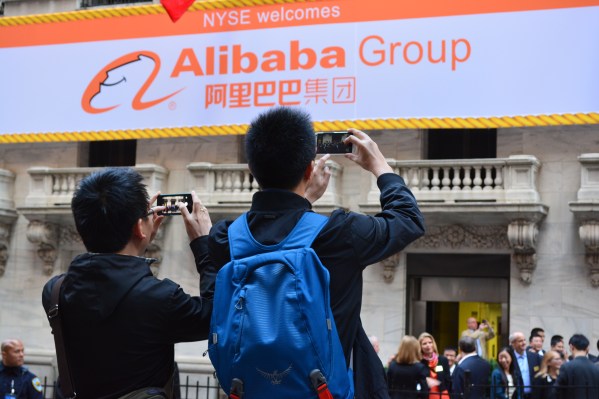The bulk of Alibaba’s revenue still comes from China, but the e-commerce giant will focus aggressively on growing its global business this year. Daniel Zhang, who took over as chief executive officer last week, told employees in in a recent speech that not only will Alibaba pour money into its global businesses, but also transform its company culture.
“We need to have global talent. We will have employees from all over the world that look different from each other,” said Zhang. “We have to take the time to understand them, to understand their habits, cultural differences, and way of thinking. This is how we become a truly international company.”
He added that “globalization” is key to making sure that Alibaba lasts for 100 years, one of founder Jack Ma’s lofty goals.
Getting its core e-commerce business into gear is essential to Alibaba’s global strategy, even though its overseas initiatives have been relatively low-key so far.
They include Tmall Global, which lets international companies sell directly to customers in China; several moves into Australia (an important trade partner for China), including the launch of its online payment service Alipay; and the opening of 11 Main in the U.S., which sells luxury goods from small boutiques.
But now it looks like Alibaba will pursue international opportunities for its e-commerce business more aggressively, especially since growth is slowing in China.
At the World Economic Forum Annual Meeting in January, Ma said that he wants Alibaba to surpass Wal-mart’s sales in 10 years by becoming a platform that serves 10 million small businesses outside of China. That would double the current number of SMBs that use Alibaba’s e-commerce sites, most of which are based in China.
Alibaba has already taken several major steps for its overseas business, but as Ma pointed out in January after the company’s Taiwan operation ran into regulatory issues, it will need to undergo a major image shift before it is considered a truly global company: “Everyone has a different perspective on Alibaba. In the U.S., we are described as a Chinese company, but in China, the focus is on our foreign business.”
Part of the problem is the fact that Taobao, one of Alibaba’s main marketplaces, is seen as a hotbed of counterfeit goods despite its repeated attempts to deal with dodgy sellers. Alibaba wants to boost its annual gross merchandise volume to $1 trillion by 2020, up from the $394 billion it reported last fiscal year, but Zhang says in order to do so, it has to deal with its reputation problem first.
“When we face issues like counterfeit goods and brushing, are we able to step up and improve our market-monitoring mechanisms and to perfect them in order to effectively combat these harmful products on our platforms. In order to reach our goal of $1 trillion in GMV, we need to transform our platform into a high-quality, thriving platform.”
Alibaba’s international expansion plans also focus in large part on its cloud computing business. Aliyun has opened data centers in the U.S. as well as the Middle East, one of the world’s fastest-growing IT markets.
